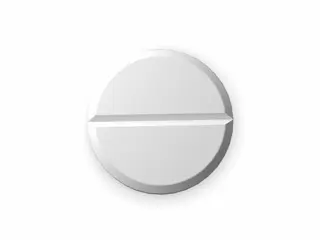Buy Clonidine Online from Trusted UK Pharmacy
| Package | Dosage | Price | Price per Dose | |
|---|---|---|---|---|
| Dosage: 100mcg | ||||
| 270 pill | 100mcg | £319.95 | £1.18 | |
| 180 pill | 100mcg | £235.59 | £1.31 | |
| 120 pill | 100mcg | £171.80 | £1.43 | |
| 90 pill | 100mcg | £141.96 | £1.57 | |
| 60 pill | 100mcg | £108.01 | £1.80 | |

Clonidine Description
Overview of Clonidine
Clonidine is a medication that has been widely used to treat various conditions related to blood pressure regulation. It belongs to a class of drugs known as alpha-2 adrenergic agonists. Its primary function is to lower blood pressure by affecting the nervous system, particularly by decreasing the levels of certain chemicals that tighten blood vessels. This action helps blood flow more smoothly and reduces the pressure within the arteries. Clonidine is available in several forms, including tablets, patches, and injections, allowing for flexible use depending on the patient's specific needs. Its effectiveness and versatility make it a common choice among healthcare providers for managing hypertension.
Uses and Benefits
The most well-known use of Clonidine is for the treatment of high blood pressure. Regular use helps prevent strokes, heart attacks, and kidney problems associated with uncontrolled hypertension. Beyond its cardiovascular benefits, Clonidine is also employed in managing certain symptoms related to ADHD in children and adolescents. It can help reduce hyperactivity, impulsiveness, and improve attention spans. Additionally, Clonidine is sometimes prescribed to manage withdrawal symptoms from opioids, alcohol, or nicotine. Its calming effect on the nervous system can alleviate symptoms such as agitation, sweating, and anxiety. Patients often find Clonidine helpful because of its rapid onset of action and multiple therapeutic applications.
How to Take Clonidine Safely
It is essential to follow the prescribed instructions when taking Clonidine. The dosage varies depending on the condition being treated, the form of medication used, and individual patient factors. Typically, for hypertension, the medication is taken orally once or twice daily. When using the patch, it is usually applied to clean, dry skin on the upper arm or torso and replaced as directed, often weekly. Patients should not stop taking Clonidine suddenly, as it can cause a rapid rise in blood pressure, leading to adverse health effects. Regular monitoring of blood pressure and communicating with healthcare providers are vital for safe treatment. Common side effects include dry mouth, drowsiness, dizziness, and fatigue. Patients should inform their doctors if they experience severe side effects or allergic reactions.
Potential Risks and Precautions
Although Clonidine is effective, it is not suitable for everyone. It should be used with caution in patients with a history of kidney problems, heart disease, or mental health issues. Pregnant and breastfeeding women should consult their healthcare provider to weigh potential benefits against risks. Misuse or overdose of Clonidine can be dangerous and requires immediate medical attention. Symptoms of overdose may include severe hypotension, sedation, or even coma. Patients taking Clonidine need to be aware of possible interactions with other medications, such as sedatives, tranquilizers, or other blood pressure drugs. Alcohol consumption can enhance side effects like dizziness or drowsiness, so it is advisable to limit or avoid alcohol while using Clonidine.
Conclusion
Clonidine remains a valuable medication for managing high blood pressure and other related conditions. Its diverse forms and multiple applications make it versatile and accessible for many patients. However, responsible use under medical supervision is crucial to maximize benefits and minimize risks. Patients should always adhere to prescribed dosages and report any unusual effects to their healthcare providers promptly. When used correctly, Clonidine can significantly contribute to improved cardiovascular health and overall well-being.


